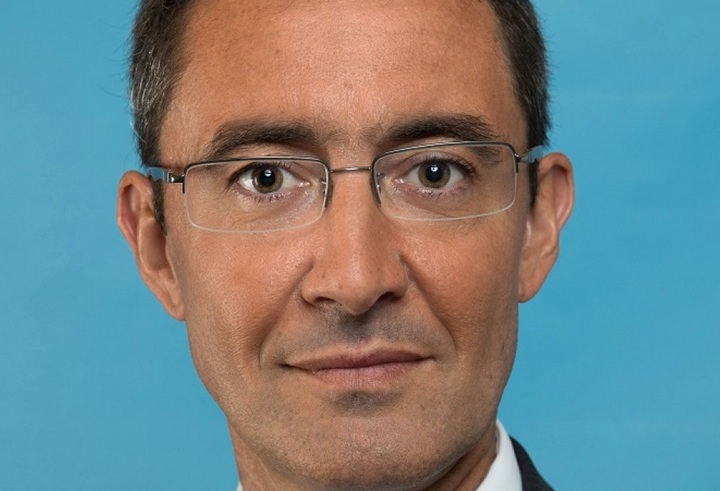Until the end of November 2015, not content with being the largest independent investment bank in Latin America, BTG Pactual had ambitious plans for global expansion. All this changed overnight, the bank was forced to redesign its structure and strategy, divest part of its assets, and lay off some of its employees. BTG Pactual is now smaller, but is focused on those business areas and markets where it can stand out from its competitors. Marcos Pimentel, responsible for overall sales in the area of fixed income and managing partner in BTG Pactual, acknowledged in an exclusive interview with Funds Society that the last 10 months have been difficult for the entity, but in the end, it has served as a lesson, helping to demonstrate its strength to the market and to its clients.
The new bank has a more local than global flavor. In the past, the company had dreamt of becoming a global bank within the Wealth Management and Asset Management sectors, but these plans have been interrupted in the short term, because BTG Pactual prefers to concentrate its efforts in the areas of business and markets where the company has a competitive advantage.
“While in the past BTG Pactual had a broader business portfolio, the company now has a more concentrated and defined portfolio, having chosen to focus on those business areas where the company clearly stands out from the competition: Sales and Trading, Wealth Management, Asset Management and Investment Banking. Focusing on markets where we have a strong local presence: Brazil, Chile, Peru, Argentina, Colombia, and Mexico, where we will continue to be a benchmark,” said Marcos Pimentel.
Pimentel knows the company well, as he joined Banco Pactual in 1992 as part of the IT team, working his way towards the sales and trading area by 1994. From 1999 to 2009, he worked for other institutions such as Bank of America, Standard Bank, and Credit Suisse, where he held various positions as head of sales and global markets. Educated in Rio de Janeiro, Marcos Pimentel holds a degree in Business Administration from the Federal University of Rio de Janeiro and an MBA from IBMEC.
For Marcos Pimentel, the company’s partnership culture has been instrumental in, not only overcoming the crisis, but in emerging even stronger: “BTG stands out from other financial institutions in the region because it consists of partners, the partnership owns around 80% of bank capital, when the crisis made its appearance, partners and company executives worked hard to strengthen the company and to establish a clear definition of the business areas in which we would like to grow.”
Pimentel points out that the capital structure was strengthened, especially in matters of corporate governance, where the main changes to make the company more accessible to investors were made, the crisis was used to implement reforms, making the bank a better institution. “It’s smaller, we have significantly reduced the number of employees, we sold several non-core lines of business, for example, BSI, the private banking unit in Switzerland; we are now smaller, but we are focused on those business areas in which we want to be, being the leading investment bank in the region,” he adds.
In Brazil, the bank is currently attracting assets for two funds in which the company holds an exclusive distribution mandate. One is focused on private equity and the other in absolute return, which according to Marcos Pimentel, have had tremendous success among investors. The company, which has allocated considerable resources and efforts in Peru, Chile, Brazil and Colombia, also has professionals who understand the product and know the needs of both fund managers and local clients, approaching clients differently. Given the company’s experience in Latin America, BTG now seeks to build a portfolio of 4 or 5 fund managers for distribution within the region as a single package.
The funds’ distribution business managed by third parties
While the funds’ distribution business managed by third parties is more like managing a specialty boutique rather than a supermarket, fund management companies wanting to come to Latin America will be better positioned if they do so through a partner that offers a solution throughout the entire region. This is one of BTG Pactual’s main advantages, the fact of having a platform within the region’s major economies and providing access to international managers to solutions developed internally by the bank, such as fund services, legal services, technology and compliance. “As a bank, we can use the capabilities developed by BTG Pactual to help with the distribution of funds managed by third parties when selling products in the region. Having a local legal advice department in every country in which we operate helps tremendously, because each country has its own regulations. Being prepared, supported by local professionals and a structure in each of these countries is very important when you’re trying to sell a product that is not standard. We are the only platform in the region covering all points of fund distribution managed by third parties; in fact, it is a key business area for BTG. We have a long history in this business; we want to grow in it, which is why we are investing greatly. We just hired Ignacio Pedrosa, a great professional in this area. I believe that it is quite obvious to fund managers and clients, who are the potential investors in these funds, that we have the experience and that we are diversified, and they know that we are good enough to serve both of those parties.”
Differences in the distribution of international funds in Latin American markets
For Marcos Pimentel, Chile is a highly consolidated market, local investors have been investing in international funds for years, they have developed the technology to do so, and therefore it is the most competitive market in the region. Chile is the country with the largest number of assets allocated to offshore funds; about 22% of total assets under management are managed outside the country. It is a more mature market, but if you want to be in the business of funds’ distribution managed by third parties in Latin America, you have to start in Chile. “What has happened in Chile, and what we want to do differently than in the past, is that pension funds have become the largest investors in international funds, investing about 39% of their assets in foreign funds. There are more opportunities if you invest with asset managers, wealth management companies and insurers, these investors do not have such a high share of foreign investment; overall, only 8% of the assets of all of these institutions are invested in international funds. Most distributors are focusing on offering their products through the AFPs. At BTG, we think that there is room for distributors to have access to other distribution channels: asset managers, wealth management companies, and insurers,” he says.
With regards to Peru, Pimentel believes that this market offers good growth opportunity. It is the second market in terms of development in foreign investment funds in the region. Peruvian pension funds have been able to develop client sophistication; they understand funds and are prepared to invest abroad. “It’s a small market, roughly half the Chilean market, but it’s a market in which regulation is good, there are several competitors, but as it still isn’t a mature market, we think it has potential for growth.”
Colombia’s case is very different; this is a market which has yet to develop. Although changes are happening gradually, pension funds are not investing as much in international funds as are Chilean or Peruvian fund managers. Local regulation allows pension funds to invest in international equity funds, but is very limited about investments in international fixed income funds. According to Marcos Pimentel, this market still needs to grow in sophistication, far from being a growth market as in Peru’s case, or mature as in Chile’s. But the opportunity might lie in that, in as far as investing abroad is concerned, they are at the beginning of the process, and the total of AuM´s of institutional clients is relevant”.
In this banking institution’s country of origin, until there is a reform in the regulation of the Brazilian market, local pension funds will continue to have many restrictions for investing abroad, which greatly reduces the channeling of investment towards international funds, because pension funds are the largest investors in the country. Meanwhile, family offices and certain individuals have more opportunities to invest abroad than do pension funds. “Brazil has many peculiarities, its law and compliance with that law is not easy for foreign professionals who don’t know how to conduct business in the country. I think, especially in Brazil, BTG is the leading institution for the distribution of third party funds, since there isn’t any other player as large in the market. Even so, this is a business area that will develop in the medium and long term.”
Finally, Marcos points out that Mexico is a difficult market. It is the second largest market in the region, but regulation is not easy and the competition is tough. Local banks already offer sophisticated services to clients. “For us, it is the most challenging market, we have taken time to understand it and that is why we are lagging a bit behind.”
Market Vision
With respect to the situation of the global economy, Marcos Pimentel is well aware that volatility levels have increased in global markets. Looking towards the second quarter of the year, he clearly sees that as the US presidential election approaches, the greater will be the climate of uncertainty in the stock markets, because the approach of each of the two candidates is diametrically opposed. In the short term, Europe’s economic climate is not optimistic either, since the result of Brexit has added yet more problems to an economy that did not quite show strong signs of recovery.
Regarding the situation in Latin America, the region’s dependence on the prices of raw materials and the economy of the Asian giant, seems to indicate that the evolution of the economies of Latin America will mirror China’s evolution. Focusing on each of those Latin American markets, Marcos Pimentel speaks of different growth cycles. While Argentina shows small signs of improvement in relation to its previous situation, it still has many challenges to face, even though he acknowledges that they are making great strides. For its part, the Chilean economy has suffered greatly due to falling copper prices, as was to be expected from the world’s largest producer of the mineral, although it is a stable economy which should perform well.
“Peru’s case is impressive, it is a small economy, but with an incredibly good performance. Its currency, its growth and its unemployment rate, make the Peruvian economy the most consistent in the region,” he says. “Colombia suffered somewhat, late last year and earlier this year, due to its dependence on the oil barrel price, and now with the slight price rise of crude oil, the economy has returned to its growth path. Mexico is the second largest economy in the region, but has a great dependence on the US economy, so its performance will be linked to the outcome of the US elections.”
Speaking of Brazil, Marcos Pimentel mentions the huge recession hitting the country, which is compounded by the policies implemented by the previous government in the years before the crisis. But he does show some optimism, as the new interim government has managed to restore confidence slightly, and he expects, at least, a slight positive growth by next year. “The economic team appointed by Temer is top notch, I am confident that once the end of the impeachment, they will have the strength to carry out the necessary reforms and make the country regain its trajectory.”
That said, in market terms, he believes the Brazilian rally is over. “The rally began when investors anticipated that there could be an impeachment process in the country, at that time, the Brazilian Real and bonds were very cheap, now that the process is almost over, most likely the rally will end as well. In the short term, inflation in Brazil is increasingly under control, so in the second half of the year, we will very probably see a cut in interest rates, which are currently close to 15%. The economic team is making great efforts to pass the necessary reforms, especially those related to public expenditure and pension plans.”
In a world of low, or even negative, interest rates, Brazil is offering one of the highest rates among emerging countries, once the impeachment process is over, and investors begin to feel more comfortable about Brazil’s political risk, fixed income investments will return. And this will not only happen in Brazil, markets such as Chile, Peru, and Colombia, are smaller in size than Brazil and Mexico, but they will greatly arouse investors’ interest.




